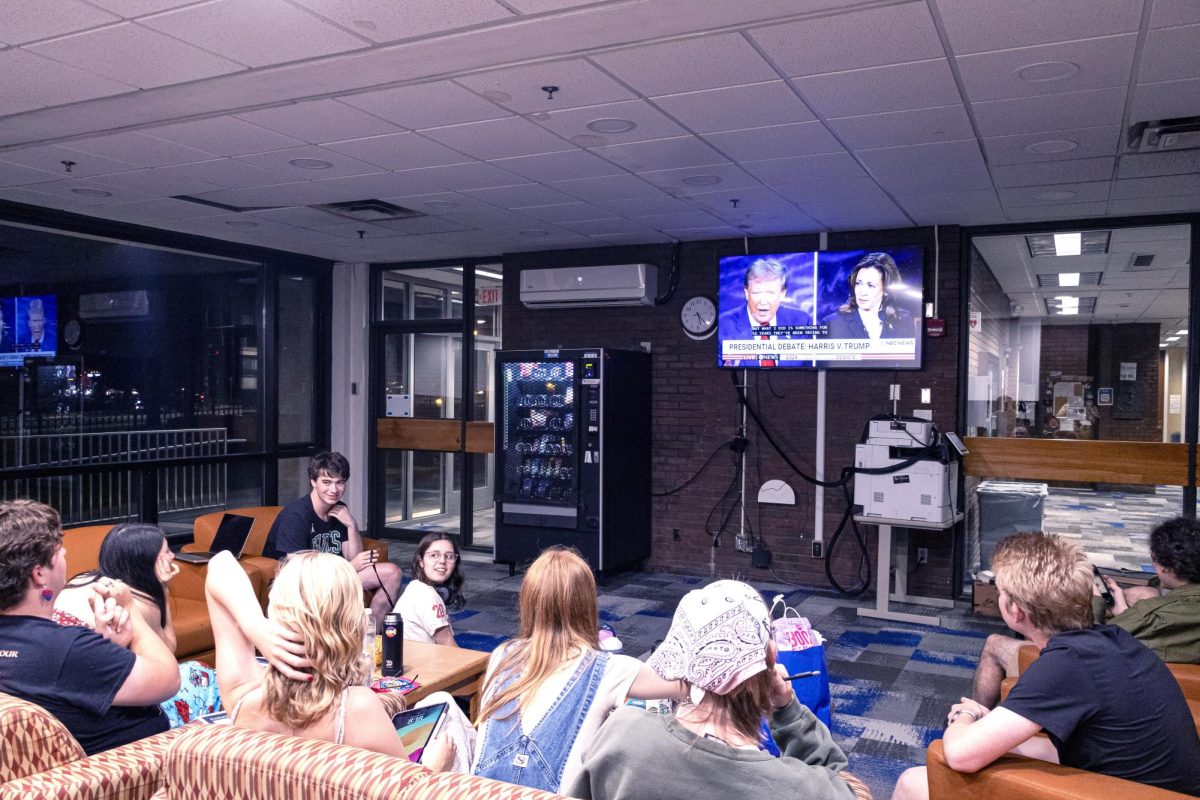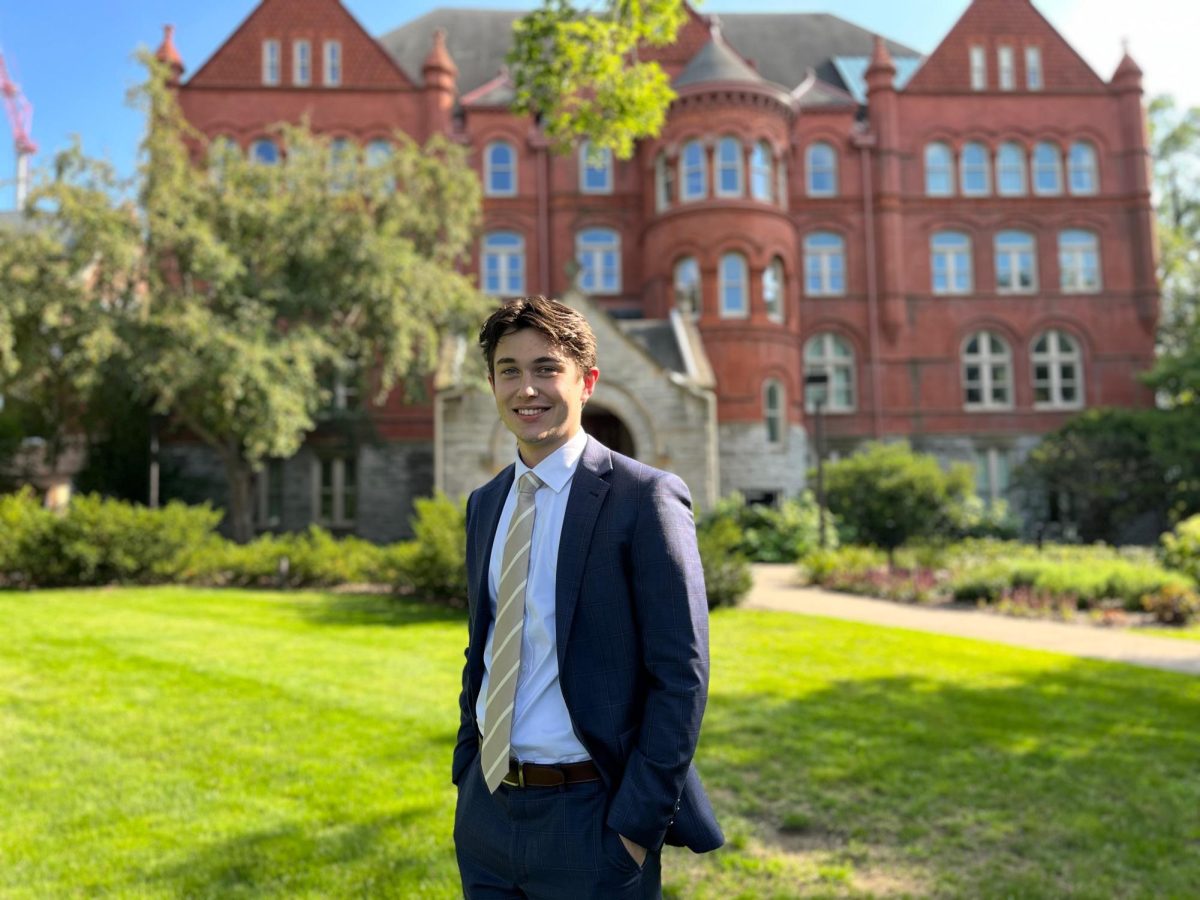On Sept. 10 — the second day of the first full week of classes — students gathered in classrooms and dorm lounges alike to watch the first, and potentially only, broadcasted debate of the 2024 presidential election cycle between the former president Donald Trump and current Vice President Kamala Harris.
Although many students already have firm ideas of who they will vote for in November, individuals engaged with the debate for a variety of reasons, from political science classes, to wanting to learn more about the specific stances of the candidates. Some even played ‘debate bingo’, distributed bingo cards with tiles to be checked after candidates mentioned certain issues. A few international first-year students worried that some of the rhetoric and proposed policies from the candidates about immigration would impact whether or not they would be welcome to study on campus after the election.
“As an international student, I think it’s really important to watch [the debate] because whoever wins, it will have consequences for me and whether I’ll be allowed to [study] here,” one student, who wished to remain anonymous due to their status as an international student, said.
In 2020, Forbes reported that international students who took classes entirely online at U.S. colleges and universities would not be issued student visas by Donald Trump’s administration to return for the fall semester.
Students’ thoughts on each candidate’s performance were mixed. Some students took a harsh tone against Trump’s performance, criticizing his lack of vitality, as well as how he responded against Harris’s statements.
“I feel like Trump seem[ed] kinda sleepy,” Aaron Gizzi ’28 said. “I don’t really know what he [was] talking about.”
Allie Dodero ’28 shared that she was “just trying to understand what Trump was saying” during the debate.
According to Kyra Layman ’25, the chair of Macalester Democrats and a campus fellow for the Minnesota Democratic Farmer-Labor (DFL) Party, reactions from the local chapter of the DFL surrounding Harris’ performance were overall positive.
“Everyone I’ve talked to so far feels good about Kamala’s debate performance,” Layman said. “People are hopeful but still anxious enough to keep working hard to get her elected, and I think that’s the best place for us to be right now.”
Students also engaged in conversations surrounding Trump’s false claims that immigrants in Springfield, Ohio eat people’s pets, many reacting with shock.
“Trump returned to dangerous rhetoric and outright lies in some attempt to save face during the debate, and while there were many memes about cats and dogs being eaten, these statements incite violence against the communities they are referencing,” Layman said. “Specifically, we have seen a lot of violence against the Haitian community in the past week, as well as violence against immigrants and non-white groups in general.”
Zach Bayrer ’28 had a more light-hearted takeaway from the debate.
“Watching the fate of the United States shouldn’t be this funny,” Bayrer said.






